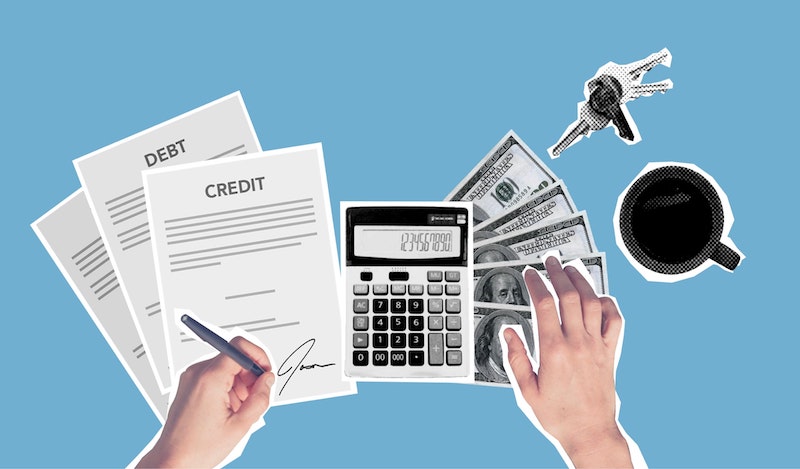In order to get a mortgage, you will need to demonstrate that you have sufficient funds to meet mortgage repayments. This can be more difficult without a permanent job but it is not impossible.
How Can You Get a Mortgage Without a Permanent Job?
It can be difficult to secure a mortgage without a permanent job; however, the mentality surrounding what constitutes a “permanent job” is changing, with more freelance roles than ever before. Mortgage lenders are following suit and many are starting to change what they accept as proof of income.
As with any loan, the factor that mortgage lenders are most concerned with is whether or not you can demonstrate income stability. Regardless of what your job situation is, you should be able to provide evidence to a lender that you have a fairly stable income source and have had that same source for a minimum of two years.
Part-time employment, self-employment and freelance jobs could all be acceptable forms of income source as long as you are able to demonstrate employment history and sufficient income to meet mortgage obligations.
Can You Get a Mortgage if You Are Unemployed?
Taking out a mortgage if you are not currently in permanent employment can be an uphill battle. Lenders invariably look at a borrower’s income or annual salary in order to assess how much money they are willing to loan.

However, some mortgage providers are more flexible than others in how they define “income” and it may not mean a permanent job. In this scenario, lenders may accept freelance income, self-employment payment stubs, savings accounts or even benefits as long as you can prove that your monthly income is sufficient to meet payments.
If you are fully unemployed, it is far more difficult to be approved for a mortgage, especially if you do not have good credit history and cannot provide a high down-payment. No-income loans, including mortgages, usually incur far higher interest rates and typically permit you to borrow less money.
Is It Possible To Get a Mortgage When on Universal Credit?
Applying for a mortgage whilst you are on Universal Credit is not a good idea as, although some lenders will accept this as a form of income, it is far more difficult to secure a mortgage under these conditions. However, if you are on Universal Credit with a pre-existing mortgage, you may be able to get assistance with mortgage payments but only if you have been claiming it for more than 39 weeks consistently.
How Can You Qualify for a Mortgage if You Do Not Have a Permanent Job?
Those who are applying for a mortgage whilst not in permanent employment will need to demonstrate some source of regular income which could include savings. Lenders will most likely also require good credit history. Regardless of your job situation, be it voluntary or involuntary unemployment, part-time employment, freelance or self-employed, you will need to prove to any lender that you can make regular payments on time.

One way that you may be able to qualify for a mortgage whilst unemployed is by having a co-signer which could be a trusted relative, spouse or friend. The chosen co-signer will need to be employed or have a high net worth. The presence of co-signers means that the mortgage is less risky for the lender as they are securing the loan with their income and credit history.
Is It Possible To Get a Mortgage Whilst on Benefits?
If you are currently receiving benefits for unemployment, it is highly improbable that your lender can use this as evidence to qualify for a home loan. Often, lenders require you to prove a minimum of two years of income from a reliable source.
However, if you are receiving benefits you may still be able to get a mortgage under the right circumstances. This will depend on many variables including credit history and alternative sources of income.
If you have a regular source of income, assets or savings, in addition to the money you are receiving through benefits, you are more likely to have your application approved.
For lenders, their biggest concern is whether or not a borrower is able to meet their monthly mortgage obligations. Thus, if the benefits are sufficient to meet payments, and borrowers can demonstrate an otherwise satisfactory financial profile, lenders may indeed approve the mortgage.
Before putting in a loan application, you should check whether the lender accepts benefits as a valid source of income as an unsuccessful application could negatively impact your credit score. Working with a mortgage advisor could help you find a lender who is best suited to your personal circumstances.
How Can I Demonstrate Mortgage Eligibility if I Don’t Have a Job?
In order to take out a loan when you are unemployed, you will still need to demonstrate how you will be able to meet repayments and show lenders that you have a solid credit history.

If you are not able to prove full-time employment, you will most likely need to share the following information:
- Any missed utility bill payments
- Current available credit
- If you have previously been declined for loans and how many times
- Whether you are on the electoral roll
Lenders will only accept mortgage applications from unemployed individuals if they can assure that you are able to meet your mortgage payments. If you can show that you are able to make timely payments and can responsibly manage outgoing payments, you will be more likely to be approved for a mortgage.
